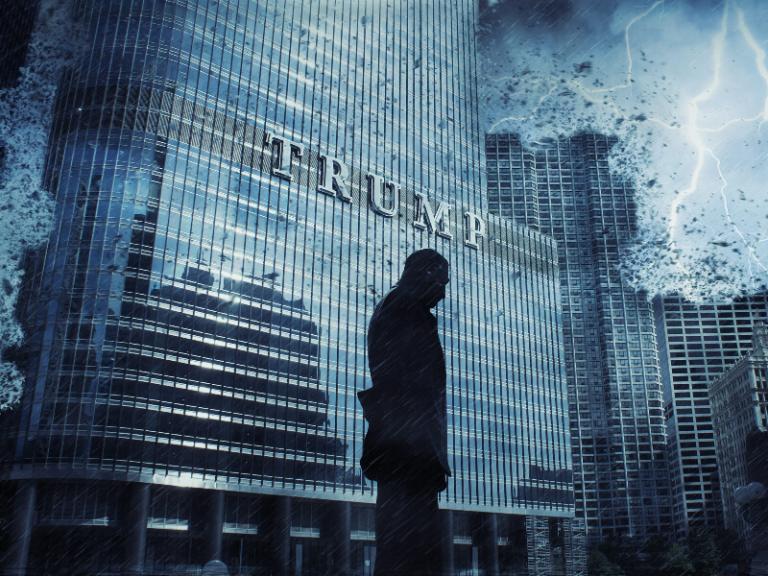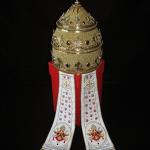Donald Trump is facing numerous criminal indictments, but the most personally devastating may be the recent judgment in a civil suit that takes away his business.
A New York judge hearing a civil complaint from the Attorney General issued a summary judgment before the trial that Trump had, as a matter of fact, committed fraud throughout his business career by consistently overstating the value of his assets. He would then use those properties as collateral to secure larger loans than they were worth.
According to the judge, Trump overvalued his Mar-a-Lago estate in Florida by 2,300%. He claimed that his apartment in Trump Tower was three times its actual size, so that it would be worth $327 million.
Trump says that this practice is common in the real estate industry and that he paid all of the loans off, so no one was injured. No harm, no foul.
But it’s not that simple under the law. Here is the analogy I heard a law professor on the radio during a long Uber ride in Chicago: Say on a Friday afternoon you steal $100 from your company. You spend the weekend at a casino, where by betting that money you win $1000. On Monday morning you replace the $100 you took. No harm, no foul, and you made $900.
Not so, said the law school prof. You are still guilty of the crime of theft, even though you paid the money back. Not only that, you may not keep the $900 that you made because of the theft. That would be defined as “ill-gotten gains.” If your boss uncovered what happened and prosecuted you for stealing, you would also have to give that back the money you won, presumably to the casino.
Similarly, Trump broke the law by exaggerating the value of his assets when applying for the loans. He admitted doing that! And it doesn’t matter if other people in the industry do it too. If they do, they too are committing a crime and would be held liable. (As your mother told you, “everyone else does it” is no excuse for doing it yourself.)
So the judge has cancelled Trump’s business licenses. He can no longer do business in the state of New York, where the Trump Organization, which operates all of his far-flung holdings, is registered. They will be put into receivership, which means that a third party will have control of them. Though Trump will still own those businesses, he may not make any money from them or control them in any way. If the company or some of its properties are sold, the proceeds will go to creditors to pay off the “ill-gotten gains,” plus penalties imposed by the state.
The facts of the case having been established by the judge, the only question now for the trial is determining how much those ill-gotten gains amount to. Prosecutors are asking for $250 million.
When asked if the ruling might be overturned on appeal, the law professor on the radio said he couldn’t see how. The facts are pretty cut and dry.
This would ruin Trump! Taking away his business, his family business started by his father, would be the unkindest cut of all, worse to him, no doubt, than going to jail.
Was the case politically motivated? Of course it was. Prosecutors have broad discretion as to what cases they want to pursue and to bring before a judge. I’m sure the New York real estate scene is rife with this sort of wheeling and dealing. But that doesn’t matter to this particular case.
I have a question, though. When you or I do a real estate deal, say, buying a house and getting a mortgage–that is, a loan secured by the property–the lenders always do an appraisal, with a third party professional assessing what the property is actually worth.
If you claimed that your $200,000 house is really worth a million dollars and that you want to borrow that much money against it, no bank would fall for that. They would send an appraiser. Why is it different with a skyscraper? Why didn’t Trump’s lenders send out someone to take measurements of his condominium in Trump Tower, like the appraiser did with his tape measure when we sold our house?
Maybe some of you can explain that. Were the lenders in on the scam? Were the loan officers who processed Trump’s paperwork given a kick back for not asking any questions? Were they breaking the law too? If so, they also were getting “ill-gotten gains” that they shouldn’t be allowed to keep, much less get a cut of Trump’s penalties.
I’m not a big Trump fan, as is well known, and I don’t condone any of his wrong-doing or law-breaking. And yet I find myself feeling sorry for the man. Taking away everything he owns? That is harsh treatment, smacking of injustice, even if it is a just application of the law.
I’m beginning to see Trump as a tragic figure, in the classical sense: An extraordinary man of great deeds who is brought down by his tragic flaw. And that flaw, as is characteristic of such men, tends to be hubris, the “overweening pride” that brings destruction. This is because he assumes that he is above the standards that apply to ordinary mortals, who respond to the spectacle of his destruction with a catharsis of pity and fear.
Trump hasn’t been destroyed yet, and he may even get re-elected president, but whether he falls or rises some more, hanging over him is the Biblical truth that “Pride goes before destruction, and a haughty spirit before a fall” (Proverbs 16:18).
Photo: Trump Tower via Pxfuel, royalty free photos.












